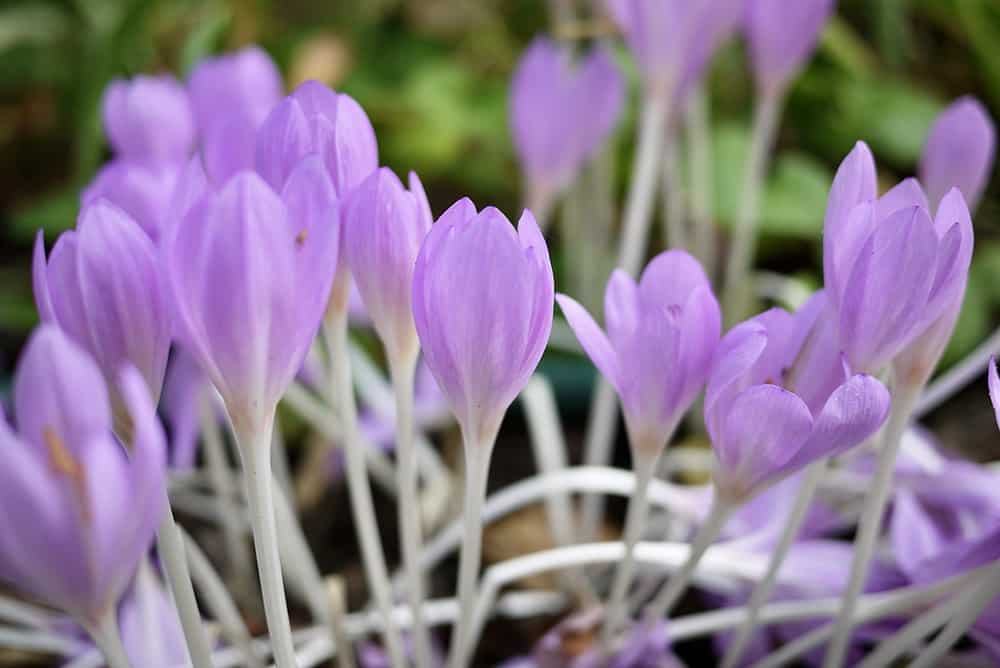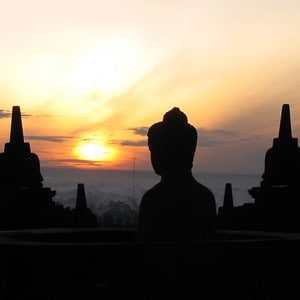Verse 14-1: The prison of cyclic existence
Part of a series of talks on the 41 Prayers to Cultivate Bodhicitta from the Avatamsaka Sutra (the Flower Ornament Sutra).
- Thoughts for entering and leaving a house
- Three principal aspects of the path
- Compassion vs. bodhicitta
- Wisdom that frees from samsara
41 Prayers to cultivate bodhicitta: Verse 14-1 (download)
We’re on the 14th verse and it says,
“May all beings escape from the prison of cyclic existence.”
This is the prayer of the bodhisattva when going outside.
This one relates very much to the first one that we did, which read, “May I lead all sentient beings to the citadel of liberation. This is the prayer of the bodhisattva when entering a house.” When you go in, entering the citadel of liberation, when you’re leaving, you are leaving the prison of samsara. Then, you’re going to go, is the house the citadel of liberation or is it the prison of samsara? Because I’m thinking about it in different ways when I enter and when I leave.
Don’t get confused like that, these are just ways of thinking when you do certain actions, because its like the whole process of making analogies, you just fit things so that they make sense to you in some ways, you make those kinds of analogies.
Here when you’re thinking, “May all beings escape from the prison of samsara, of cyclic existence,” then there’s actually quite a lot you can think about at this point, because you can think about: what is cyclic existence; why is it a prison; do I really want myself to escape or am I just saying those kinds of words; and then if I do want myself to escape, what about everybody else, do I really care about everybody else enough to work for their benefit and help them escape?
There’s a lot of meaning contained in this line, because its directing us in terms of the three principal aspects of the path. The determination to be free is the first one, so determining for ourselves to be free and then wanting other sentient beings to be free, which is the bodhicitta. Just wanting other sentient beings to be free, that alone is not bodhicitta, that is compassion. But based on that compassion, when we aspire to attain full enlightenment ourselves so that we will have the wisdom, compassion and skillful means to be able to lead sentient beings out of the prison of samsara to the citadel of liberation. That aspiration for enlightenment combined with the aspiration to benefit sentient beings and liberate them, that’s the bodhicitta. The second one is dependent on the first one which is the determination to be free and it leads to the second of the three principal aspects of the path, the bodhicitta, and then how are we going to free ourselves and others from cyclic existence. The way to do that is to gain the correct view of emptiness and then meditate on that and integrate that with who we are so that our whole view changes. And by developing that wisdom, which cuts the ignorance that’s the root of cyclic existence, then we liberate ourselves from cyclic existence and also from the bonds of pacification or peace for oneself and instead aim for full enlightenment. So the wisdom becomes the way to liberate ourselves and others.
There’s a lot of meaning in this verse and we can actually spend some time unpacking it. Let’s see what happens over the next days, we might unpack it some more.
Venerable Thubten Chodron
Venerable Chodron emphasizes the practical application of Buddha’s teachings in our daily lives and is especially skilled at explaining them in ways easily understood and practiced by Westerners. She is well known for her warm, humorous, and lucid teachings. She was ordained as a Buddhist nun in 1977 by Kyabje Ling Rinpoche in Dharamsala, India, and in 1986 she received bhikshuni (full) ordination in Taiwan. Read her full bio.


